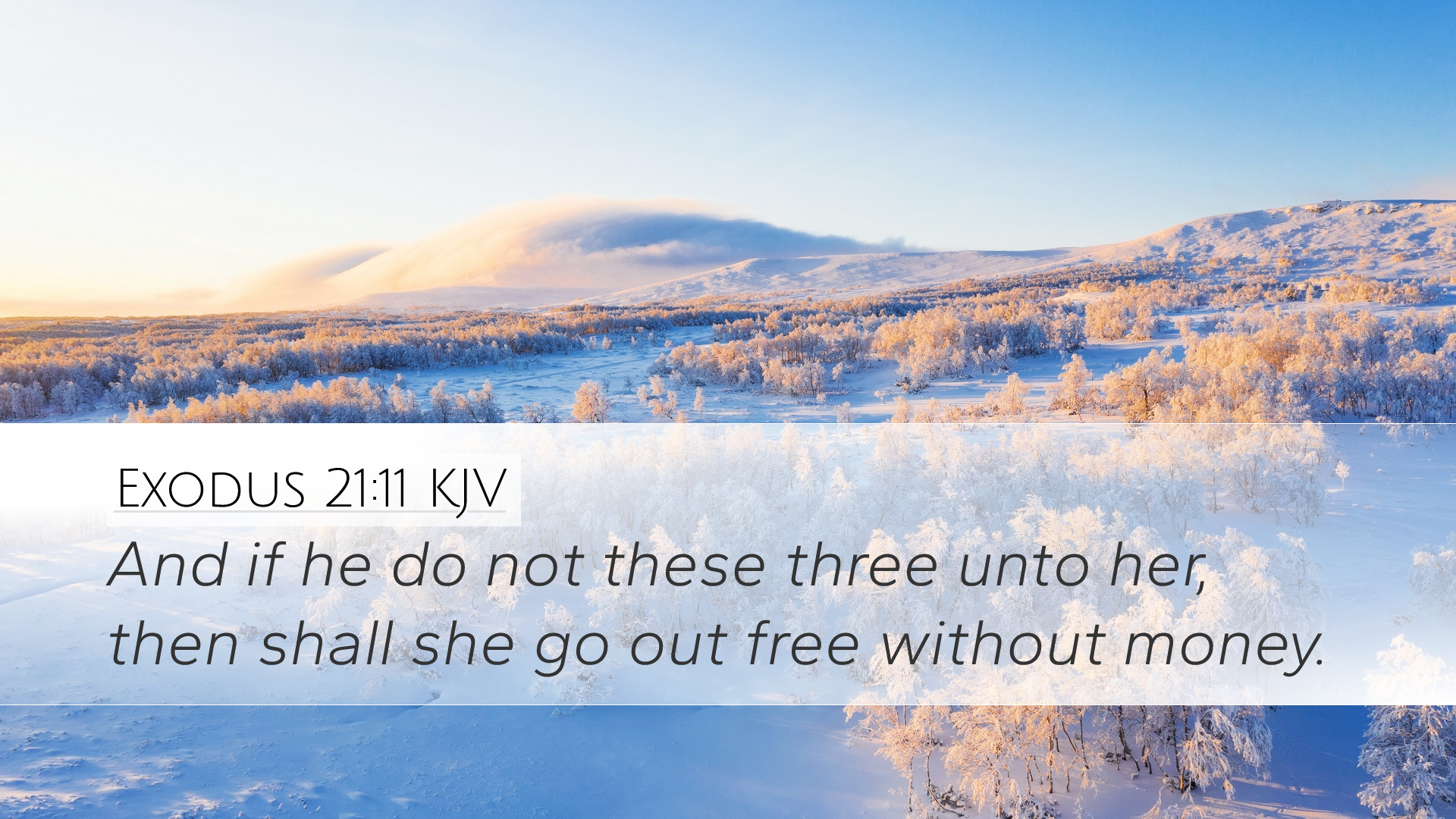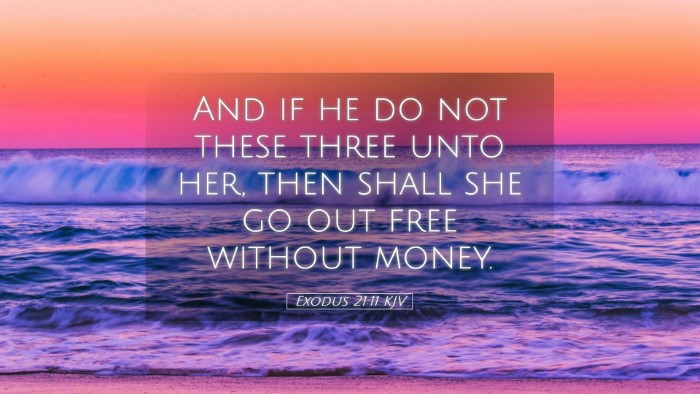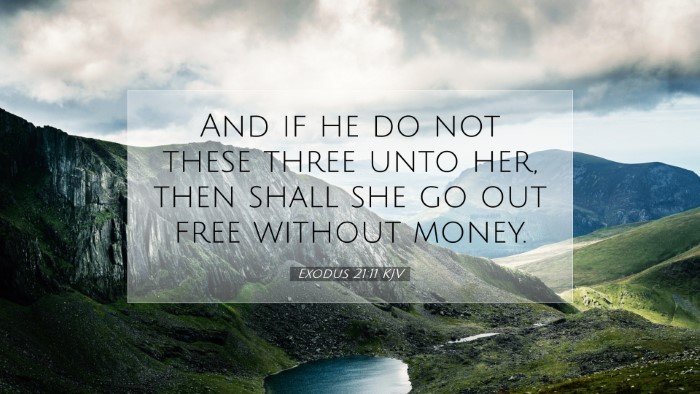Exodus 21:11 - Commentary Summary
Verse: "And if he do not these three unto her, then shall she go out free without money." (Exodus 21:11, KJV)
Introduction
Exodus 21:11 is situated within the broader context of laws concerning servitude and the treatment of bondmaids in Israelite society. This verse is part of the legislation and social reform that Moses received from God, intended to guide the moral and ethical standards of the people of Israel. In this commentary, we draw insights from several public domain sources, including those by Matthew Henry, Albert Barnes, and Adam Clarke, to enrich our understanding of this significant verse.
Context and Background
The legal stipulations in Exodus 21 deal with various forms of servitude, especially focusing on female servants (often referred to as bondmaids). This category of law portrays a more humane approach compared to contemporary practices in surrounding cultures, reflecting the Israelites' covenant relationship with God which included principles of justice and care for the vulnerable.
Understanding the Three Provisions
The phrase "do not these three unto her" refers to three essential duties owed by a master to his maidservant: providing food (sustenance), clothing (protection), and marital rights (a relationship of fidelity and respect).
- Sustenance: The provision of food indicates a duty of care and sustenance that every master owes to those in his service, affirming their dignity as human beings.
- Clothing: Clothing symbolizes not only physical protection from the elements but also respect and care for her status and person. Clothing, in biblical terms, is often linked with honor and modesty.
- Marital Rights: This provision underscores the importance of mutual respect and fidelity in relationships, which should not be disregarded or neglected.
Theological Implications
The implications of Exodus 21:11 are profound for understanding God's design for relationships. The provision for liberation if these rights are not upheld shows that God desires justice and equality, particularly for those who are most vulnerable in society.
Insights from Commentaries
Matthew Henry points out that the intention behind this law reflects God’s concern for the welfare of all individuals, particularly those who find themselves in servitude. His commentary suggests that such laws not only aim to protect the maidservant but also serve as a reminder for masters of their responsibilities. Henry emphasizes that the harsh realities of servitude require laws that promote compassion and dignity.
Albert Barnes adds that the permission for a maidservant to go free without the burden of payment if her rights are not honored illustrates a significant departure from the norms of surrounding cultures that often regarded women as property. Barnes notes that the value placed on human dignity is a cornerstone of God's law, calling for a societal structure that supports justice and mercy.
Adam Clarke further elaborates on the cultural implications of the law, stating that it reflects a growing awareness of individual rights within the community of faith. Clarke’s analysis underscores that liberation from servitude is not merely physical but also a restoration of personal rights and honor which God intends for all His people.
Application for Today's Context
For pastors, students, and theologians, Exodus 21:11 serves as a foundational text for understanding the balance of justice and mercy in Christian ethics. The principles can be applied to contemporary issues such as social justice, treatment of the marginalized, and the sanctity of all human relationships.
Practical Implications
- Advocacy for Rights: This verse highlights the importance of advocacy for those who are marginalized or oppressed in society today. It implores believers to ensure that justice is meted out properly, resonating with calls for equity and human rights.
- Relationships and Familial Duties: The responsibilities outlined reflect a broader theological mandate for the treatment of others, encouraging a culture that values and respects all individuals within the community, particularly in contexts of leadership and authority.
- Reflection of God’s Character: The requirements indicate a God who is just and cares deeply about relationships; thus, understanding these laws illuminates the nature of God as one who champions justice, equity, and compassion.
Conclusion
Exodus 21:11 is not just an ancient command but serves as spiritual and ethical guidance that speaks volumes to the human condition. Understanding this verse through the lens of respected commentators invites deeper reflection on how God’s principles of justice and mercy should inform our lives today. Whether in pastoral ministries, academic pursuits, or personal study, this passage contributes significantly to our understanding of divine justice in practical terms, urging us to embody these values in our relationships and communities.


